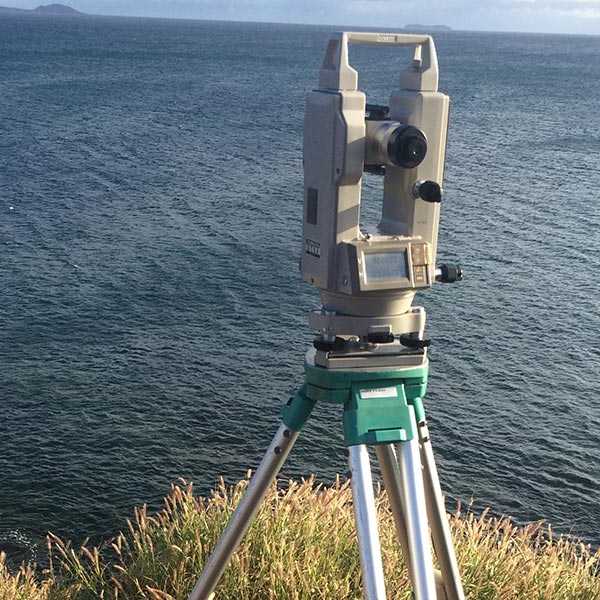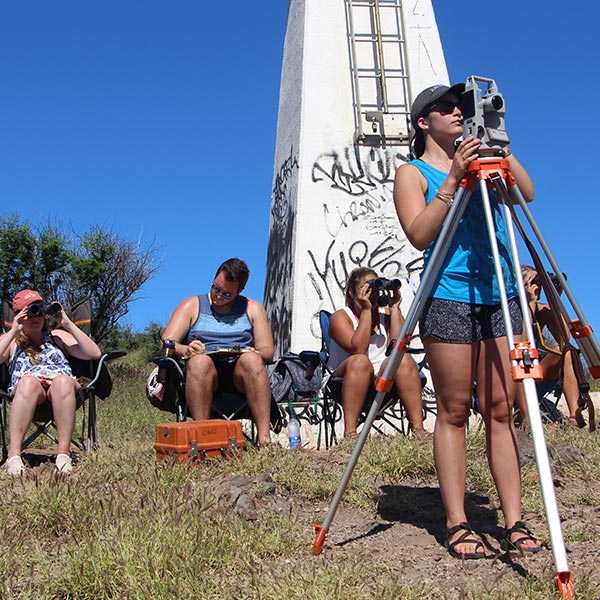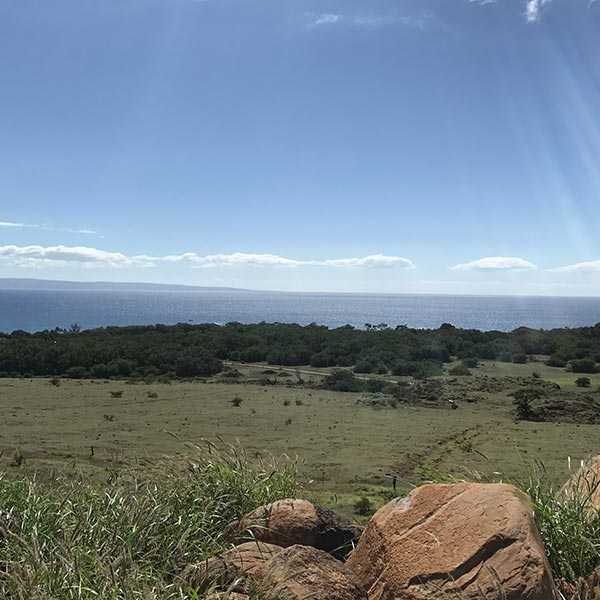“It’s a really neat opportunity that PLU presents to students,” Lexi Higgins ’19 said of the Natural Sciences Academic Festival, one of many opportunities to showcase student-faculty research. “It’s nice to put forth my research, voice my concerns, and show people topics they might not have thought about.”
While many of their classmates braved a chilly winter back in Parkland, three Lutes sat on a beach in Hawaii and witnessed the incredible moment when a humpback whale taught her calf how to breach near the shore.
No, it wasn’t vacation. It was research.
The group of Pacific Lutheran University students — Mikaela Haglund ’19, Lexi Higgins ’19 and Cassandra Ingram ’19 — traveled to Maui during January Term 2017. Their mission: to monitor how water-vessel traffic, and specifically boat noise, affects behavioral patterns of humpback whales.
“Their main sense is hearing,” Haglund said. “They literally use it for everything — communication, finding food and navigation. When boats and vessel traffic come too close to the whales it causes them distress and harm.”
The students said the experience left them feeling prepared for the rest of their time at PLU and beyond.
“The biggest takeaway for me is being able to apply what I’m learning in classes and put it into actual observation and fieldwork,” Higgins said. “We learned so much about the environment from scholars. It’s made me a more critical thinker and it’s exciting to understand the situation of whales and think of more thoughtful ways to solve problems.”
Marsha Green, a professor at Albright College in Pennsylvania and the president of the nonprofit organization Ocean Mammal Institute, spearheaded the field research. Every year, Green takes a group of 30 students from across the country to McGregor Point in Maui during the breeding season of Hawaiian humpback whales.
Every day during the internship, the PLU students spent four-hour blocks in the field. They used binoculars to spot the whale pods, used a satellite to track coordinates of whales and their proximity to boats, recorded whale behaviors such as breaching, and tracked the amount of downtime between the whales’ various behaviors.
“The main area we were looking at was downtime and how boats affected whales in their surface activity versus how long they were spending underwater,” Higgins said. “Overall, we found that the whales would stay under the water for a longer maximum downtime after the boat had left.”
In other words, she said, the whales’ average downtime decreased in the absence of boats: “We understood that to mean the whales were staying under the water longer and then staying at the surface longer.”
For pods with calves, this is a problem; calves can’t spend nearly as long under water as adult humpback whales.
“We noticed after the boats were impacting, the whales were diving deeper and swimming out further to get away from the boats that were disrupting them,” Higgins said. “The calves were spending much longer than normal underwater and then coming to the surface to rest.”
Higgins, a biology major and environmental studies minor, said she decided to participate in the internship to gain research experience. She loved being with the whales every day and hopes to work with animals in the future.
“I enjoy learning about animals and marine life, specifically,” she said. “I also like learning about the environment and how pollution affects ecosystems.”
Haglund, also a biology major, applied for the internship because it focused on environmental biology.
“I hadn’t had any exposure to that in my classes and I thought it would be exciting and entertaining to study this other area of biology that really interested me,” she said. “I had never done field research before, so I thought it would be valuable to obtain that type of experience and exposure.”
After completing the internship, the students presented their research on campus at the inaugural Undergraduate Research Symposium in April, followed by the Natural Sciences Academic Festival in May.
Haglund said it was amazing that people wanted to learn more about the group’s research. “I liked that they showed interest in the whales and wanted to know what we did and what we found,” she said.
Higgins echoed her remarks, adding that she enjoyed being asked questions she had never thought about herself.
Julie Smith, associate professor of biology at PLU, advised some of the students for the project. There is no better way to learn about science than actually doing science, she said.
“Participating in research allows students to gain experience in the entire process from generating hypotheses, designing and troubleshooting experiments, analyzing and interpreting results and sharing results with the broader scientific community,” Smith said. “The extensive reading and thinking about primary literature that accompanies research allows students to further explore and identify the questions and topics that excite them.”
The experience also is good for students who don’t become professional researchers, she said.
“For students who do not go on to become research scientists, this serves them as lifelong learners,” Smith said. “For others who do pursue research careers, this refinement is invaluable during the search for graduate programs.”
For all three students, the internship proved to be an invaluable experience. Higgins said it’s helped her reflect on her post-graduate plans.
“That’s a constant thought and discussion at PLU — what do you want to do after you graduate?” she said. “Having that experience showed me what life would be like if I’m on a research team. I would love to do more experiences like this to figure out what direction I want to take.”




